Stakesholders Must Help Government Of Ghana To Eliminate Open Defecation By 2030—UNICEF WASH Specialist, Loretta Roberts
Making a power point presentation on the topic;"Reflection on Findings from the Water and Sanitation,2010 and 2021 PHC Comparative Analysis."
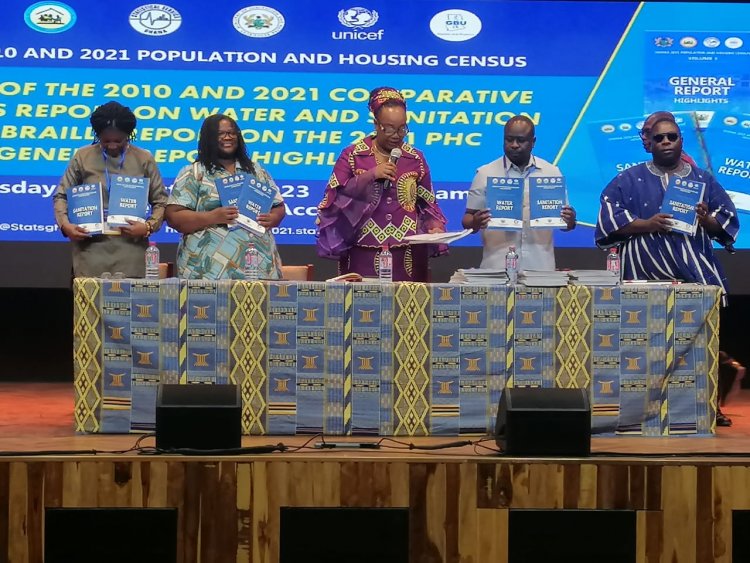
THE WATER and Sanitation Hygiene (WASH) Specialist at United Nations Children's Fund (UNICEF), Mrs Loretta Roberts, has appealed to all households to own their own toilet facilities which would go along way to help Ghana to realise its ambition of becoming an open defecation free country by 2030.

Making a power point presentation on the topic;"Reflection on Findings from the Water and Sanitation,2010 and 2021 PHC Comparative Analysis."
She noted that the Ghana is currently on-track to eliminate open defecation by 2030 and that this target would easily be achieved if the people change their attitude to stop practicing open defecation.

According to her, she believes that there is the need to have a situation where every district in the country is implementing an intervention to eliminate open defecation and increase the average of household sanitation.
"I am saying that it seems that there is a lot to be done but the good news from the data Ghana Statistical Service (GGS) has released is that the country has made massive strides in eliminating open defecation since in 2010.
“So for us, I think is an encouragement that we know what to do to ensure that we can meet the target with the right investments, with the right investment for the MMDAs, we should be able to see Ghana meet the Sustainable Development Goal (SDG) targets of eliminating open defecation and ensuring that each household has accessed to expectation facilities for their use," Mrs Roberts stated.
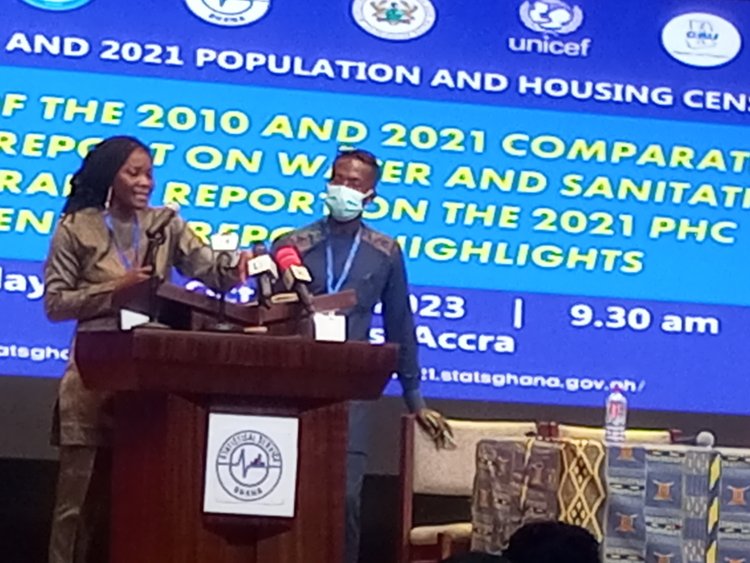
"We can see in the national level that there is a marginal reduction but when you go down into details particularly for the district, you would see that some districts have done very well as some have reduced open defecation by more than 50 percent.
“And so what has been done in these districts, most of these activities have started with social and behavior change, bolding the capacity of the private sector to be able to support households acquired durable sanitation facilities and then some enforcements," Mrs Roberts asserted.
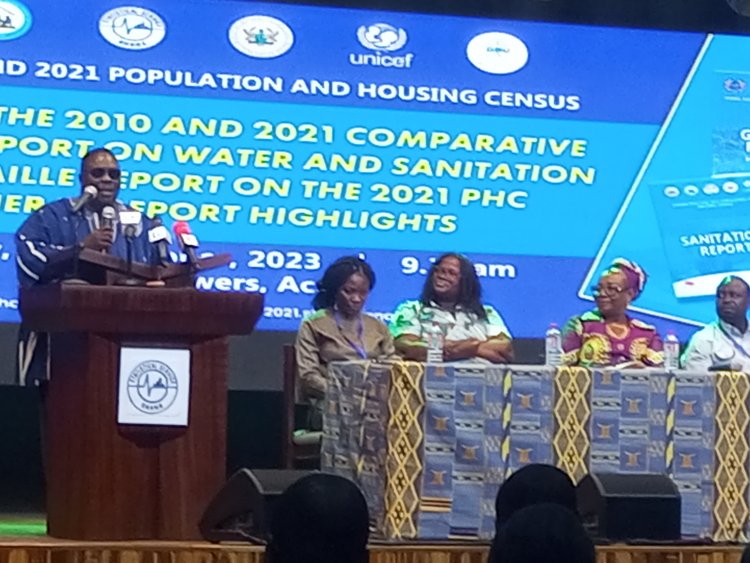
She stressed the need for government to ensure that each district is implementing sanitation policies, saying that currently it is only those that have project that are implementing sanitation policies and that this is not helpful.
According to her, there is the need to have a situation where every district in the country is implementing an intervention to eliminate open defecation and increase the average of household sanitation.
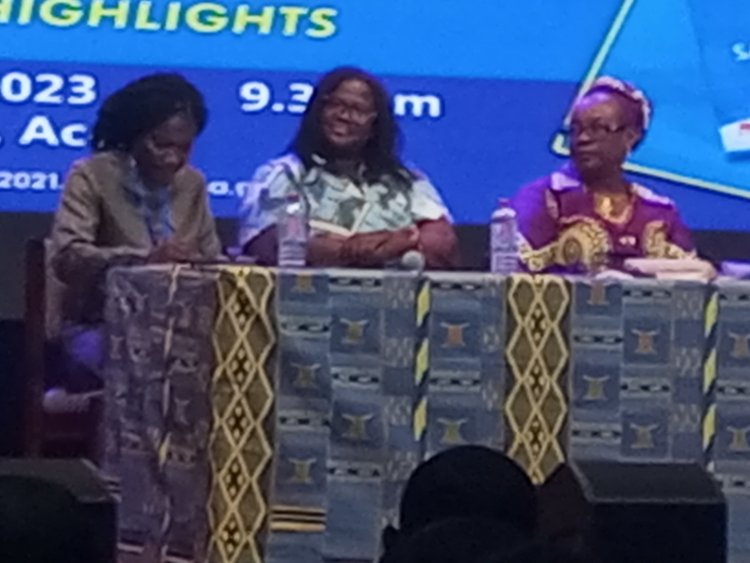
Mr Roberts made the call when she was speaking at the release of the 2020 and 2021 Comparative Analysis Report on Water and Sanitation and Braille Report on the 2021 Population and Housing Census General Report Highlights in Accra by GSS and Ministry of Sanitation and Water Resources.
This initiative was a collaborative efforts between the GSS and other key development partners such the United Nations International Children's Emergency Fund and Ghana Union of Blind Union (GBU) which have shown their willingness to support the water and sanitation initiatives in Ghana.
The occasion was also used by the Ghana Statistical Service (GSS) to release the maiden census reports in braille, audio and large prints to make it easy for people who have difficulty seeing to have access to the 2021 Population and Housing Census report.
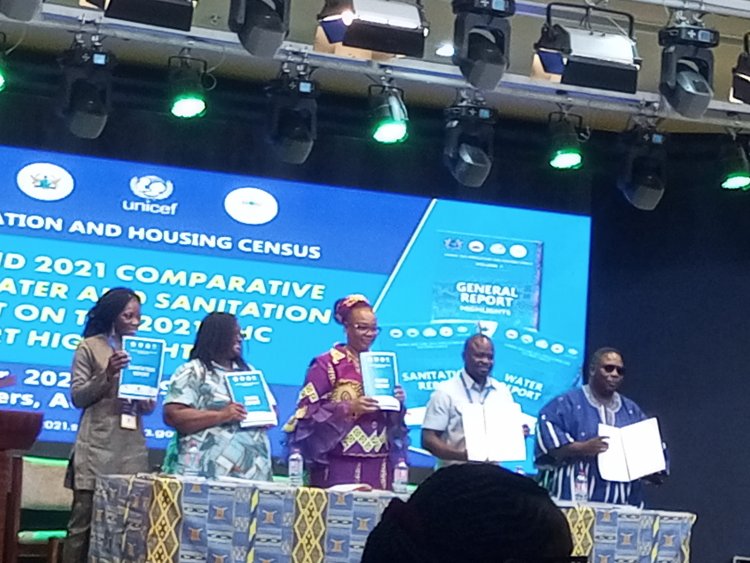
The first census publication in braille was published in partnership with the Ghana Blind Union (GBU) as part of the commitment of the GSS to disseminate census data in diverse ways to meet the needs of all data users.
The hundred and forty-one (141) page of sanitation document signed by Government Statistician of GSS, Professor Samuel Kobina Annim catalogues the gains and challenges of the sanitation sector over the past years--that is from 2010 to 2021.
The sanitation report covers the toilet technologies used by households, toilet service levels and defecation points for households without toilet by region, district, and type of locality.
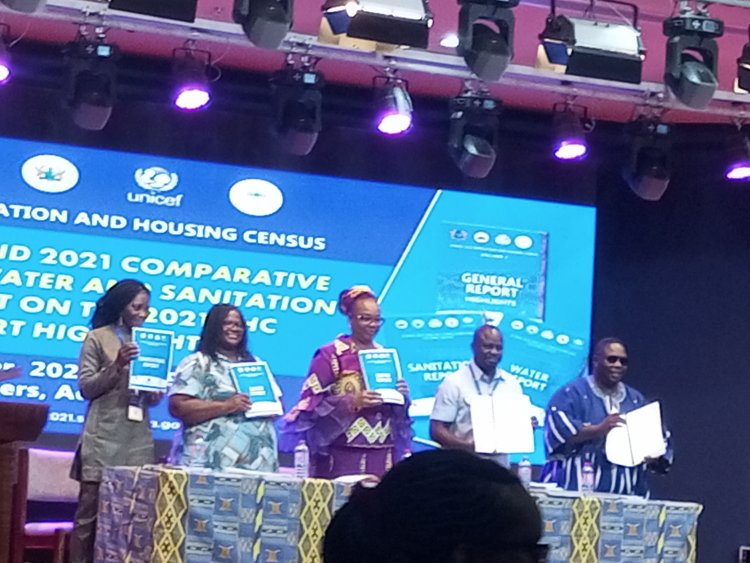
This publication generally targets Government Ministries, Departments, and Agencies
(MDAs), Metropolitan, Municipal and District Assemblies (MMDAs), development
partners, civil society organisations (CSOs), private sector, researchers, and the
general public.
The report particularly seeks to provide basic data to MMDAs to assist them achieve their core function as stipulated in the 1993 Local Government Act (Act 462)—that is, to aid decentralized planning and provision of public services in all districts for the development of local economies.
This is important because the 2021
PHC realigned with the 2010 PHC provides the first set of comparative official statistics
on the recently created regions and districts.
The centra premise of the Sustainable Development Goals, which is to “leave no one
behind” requires disaggregated data to inform settlement arrangements, identify areas of sub-national disparities and make vulnerable groups more visible to decision
makers.

This report thus sets the tone for further analysis of disaggregated indicators
on sanitation.
Aside that development, the Minister of Sanitation and Water Resources who doubles as the Member of Parliament (MP) for Tano North Constituency in the Ahafo Region, Honourable Freda Prempeh has also launched 2010 to 2021 Water Report.
The Water report has detailed of Households’ Main Sources of Drinking Water, Households
with source of drinking water on premises, Average
Time Spent by Households without
drinking water on premises to Access Drinking Water, and Households that Use Improved
Water as Main Sources of Drinking Water by region, district, and type of locality.
This publication generally targets Government Ministries, Departments, and Agencies
(MDAs),Metropolitan, Municipal and District Assemblies (MMDAs), development
partners, civil society organisations (CSOs), private sector, researchers, and the general
public.
The report particularly seeks to provide basic data to MMDAs to assist them achieve their core function as stipulated in the 1993 Local Government Act (Act 462) —that is, to aid decentralized panning and provision of public services in al districts for the development of local economies.
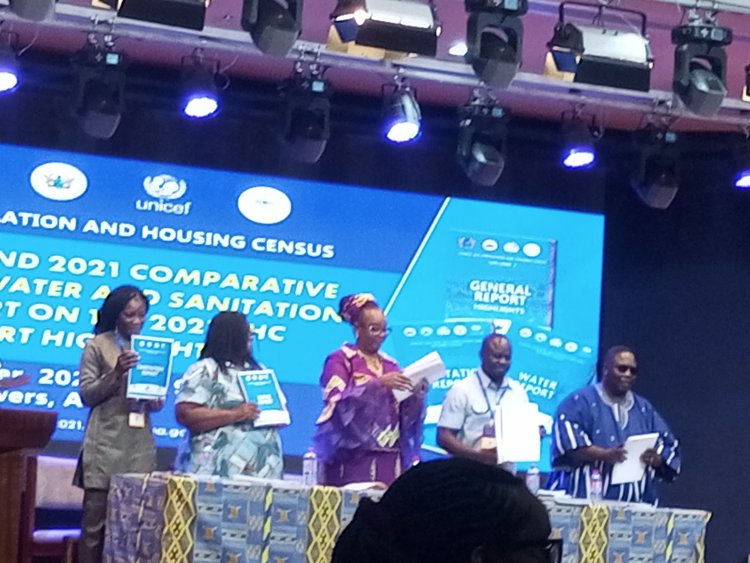
This is important because the 2021 PHC realigned with the 2010 PHC provides the first set of comparative official statistics on the recently created regions and districts.
The central premise of the Sustainable Development Goals, which is to “leave no one
behind,” requires disaggregated data to inform settlement arrangements, identify areas
of subnational disparities and make vulnerable groups more visible to decision makers.
This report thus sets the tone for further analysis of disaggregated indicators on sources of water used by households.
The water report covers a historical overview of Ghana’s water and sanitation sector; institutional developments and sector coordination; performance information on water resources management; urban, rural and small town water supply in 2010; performance information on sector sanitation, hygiene and school WASH in 2010.
The report also provides information on WASH sector financing including contributions from non-state actors to the WASH sector; monitoring, evaluation and sector reporting and makes recommendation for the way forward.
Making power point presentation entitled "Water and Sanitation , 2010and 2021 PHC Comparative," Dr. Frempong-Ainguah stressed the urgent need for all households in the country to be endeavored to own their own toilets.
It is estimated that Ghana loses 79 million dollars annually on open defecation.
Individuals, Institutions and Metropolitan, Municipal and District Assemblies who have distinguished themselves in the fight against open defecation were given awards for their outstanding leadership.
However, she was not happy about the increasing trend, disclosing pen defecation is looming in the Ada West District in the Greater Accra Region where some residents in many of the communities have resorted to indiscriminate defecation because the public toilets are not usable.

Whereas some of them engage in 'free range' (defecating in open spaces), especially around the public toilets, others parcel their faeces in black plastic bags at home and deposit them anywhere in their communities.

 Freeman Koryekpor
Freeman Koryekpor 



































